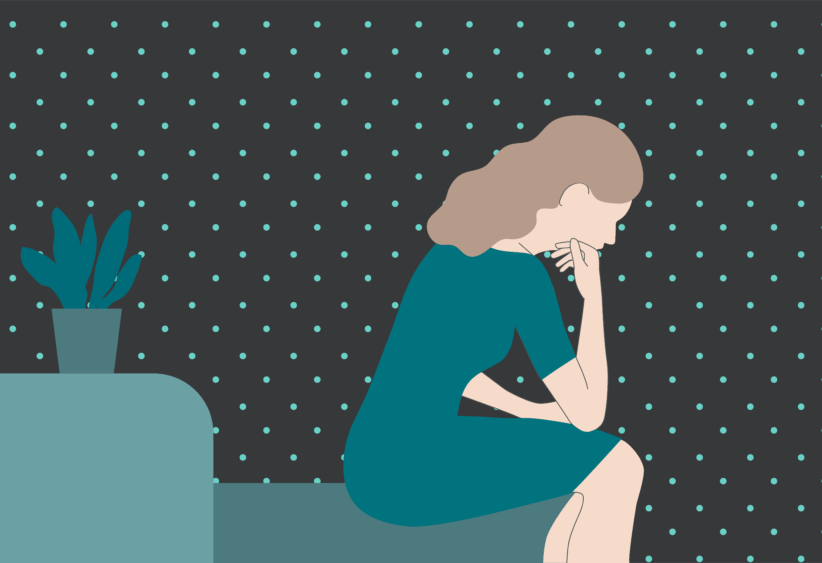
The New Postpartum Depression Drug & What Moms Need to Know
Postpartum depression (PPD) is a serious mental illness that can develop in approximately one in seven new mothers. But the recently approved drug, Zurzuvae, offers a chance at recovery—along with concerns—for many patients suffering with the condition. Here’s what women need to know about this new postpartum depression drug.
What is Zurzuvae?
Zurzuvae, which is the brand name of the drug, zuranolone, was approved Friday to treat PPD. It’s an oral medication, and until now, treatment for PPD was only available as an IV injection given by a health care provider in certain health care facilities, according to the U.S. Food and Drug Administration (FDA). (Sage Therapeutics and Biogen branded the drug.)
Here’s how the medication works: Women take a 50mg pill daily. Per the FDA, it should be taken every day, for 14 days, in the evening with a fatty meal.
How fast do women see improvement after starting the drug regimen? Fast—according to Sage Therapeutics.
“Women were reporting rapid improvement in their depression as early as day three,” Dr. Kristina Deligiannidis, professor at the Institute of Behavioral Science at the Feinstein Institutes for Medical Research in New York, said in this CBS News article. According to CBS, Deligiannidis led the study of the drug in the past and has worked as a paid consultant for Sage and Biogen.
Concerns about the new postpartum depression drug
The FDA put a warning on Zurzuvae’s labeling that it can impact a person’s ability to drive and perform other potentially hazardous activities. Patients also may not be able to assess their degree of impairment. To reduce the risk of harm, patients should not drive or operate heavy machinery for at least 12 hours after taking Zurzuvae, the FDA said.
New mothers should be aware of the drug’s side effects, too. The most common side effects include drowsiness, dizziness, diarrhea, fatigue, nasopharyngitis (the common cold), and urinary tract infection, the FDA said. Ironically, use of Zurzuvae may cause suicidal thoughts and behavior, and may even cause fetal harm.
The government agency also said women should use effective contraception while taking it, and for one week after taking it.
Psst..check out RSV Shot has been Approved by the FDA for Infants: What Parents Need to Know

About postpartum depression
Postpartum depression is more than just a new mom having “baby blues.” PPD tends to last longer and severely affects a woman’s ability to return to normal function, according to the National Library of Medicine. It also affects the mother and her relationship with her baby.
As with other forms of depression, PPD is characterized by sadness and/or loss of interest in activities that one used to enjoy and a decreased ability to feel pleasure, according to the FDA. It can present with symptoms such as cognitive impairment, feelings of sadness or inadequacy, loss of energy or suicidal ideation.
“Postpartum depression is a serious and potentially life-threatening condition in which women experience sadness, guilt, worthlessness—even, in severe cases, thoughts of harming themselves or their child. And, because postpartum depression can disrupt the maternal-infant bond, it can also have consequences for the child’s physical and emotional development,” Tiffany R. Farchione, M.D., director of the Division of Psychiatry in the FDA’s Center for Drug Evaluation and Research, said. “Having access to an oral medication will be a beneficial option for many of these women coping with extreme, and sometimes life-threatening, feelings.”

What mental health experts say about the new postpartum drug
The drug’s approval comes as welcoming news for some mental health workers, including Wendy Davis, Ph.D., PMH-C, executive director at Postpartum Support International.
“Women with PPD desperately need prompt care and additional treatment options that can provide quick relief so they can be healthy and present during this momentous time in their lives,” she said.
But other experts expressed concerns about the drug, citing that it was originally tested mostly on women with severe PPD, not mild or moderate depression, and patients should still consider psychotherapy as an intervention for depression, as noted in this CNN article.
“There’s a concern that this medication will just get used for everybody,” Catherine Monk, professor and chief of the division of women’s mental health in obstetrics and gynecology at Columbia University Vagelos College of Physicians and Surgeons, said in the article. “Whereas for people with mild to moderate depression, the gold standard of care is to start with psychotherapy and other behavioral and lifestyle changes,” Monk said, adding that the pill should not be a first response for patients with mild to moderate postpartum depression.
Available Resources
As always, talk to your doctor if you think you might be suffering from PPD or another illness. You can read more about PPD, depression and mental health, and the new postpartum depression drug at these websites:
U.S. Food and Drug Administration
Postpartum Support Interational
National Alliance on Mental Illness
Psst…. Check out Sunflower Mazes Near Staten Island





